Getaway driver in Florida Keys cocaine murders denies knowing killing was the plan
The man who admitted to police he drove the car to and from a double homicide in the Florida Keys denied on the witness stand Wednesday that he knew murder was the plan that night.
Instead, Adrian Demblans, 42, said he drove Jeremy Macauley — the man being retried for the Oct. 15, 2015, slayings after an appeals court threw out his conviction — to the Tavernier home in the Upper Keys so Macauley could deliver money to silence an extortion attempt in a cocaine heist.
Prosecutors and Monroe County Sheriff’s Office detectives say Macauley killed Tara Rosado, 26, and Carlos Ortiz, 30, inside Rosado’s Cuba Road home because Ortiz was threatening to go to the police about a cocaine-trafficking operation he and Macauley were involved in unless he was paid off.
Demblans is out of prison after serving eight years for accessory after the fact of a murder. In this case, he pleaded guilty months before Macauley’s original 2017 trial and agreed to cooperate with detectives and prosecutors in their case against him.
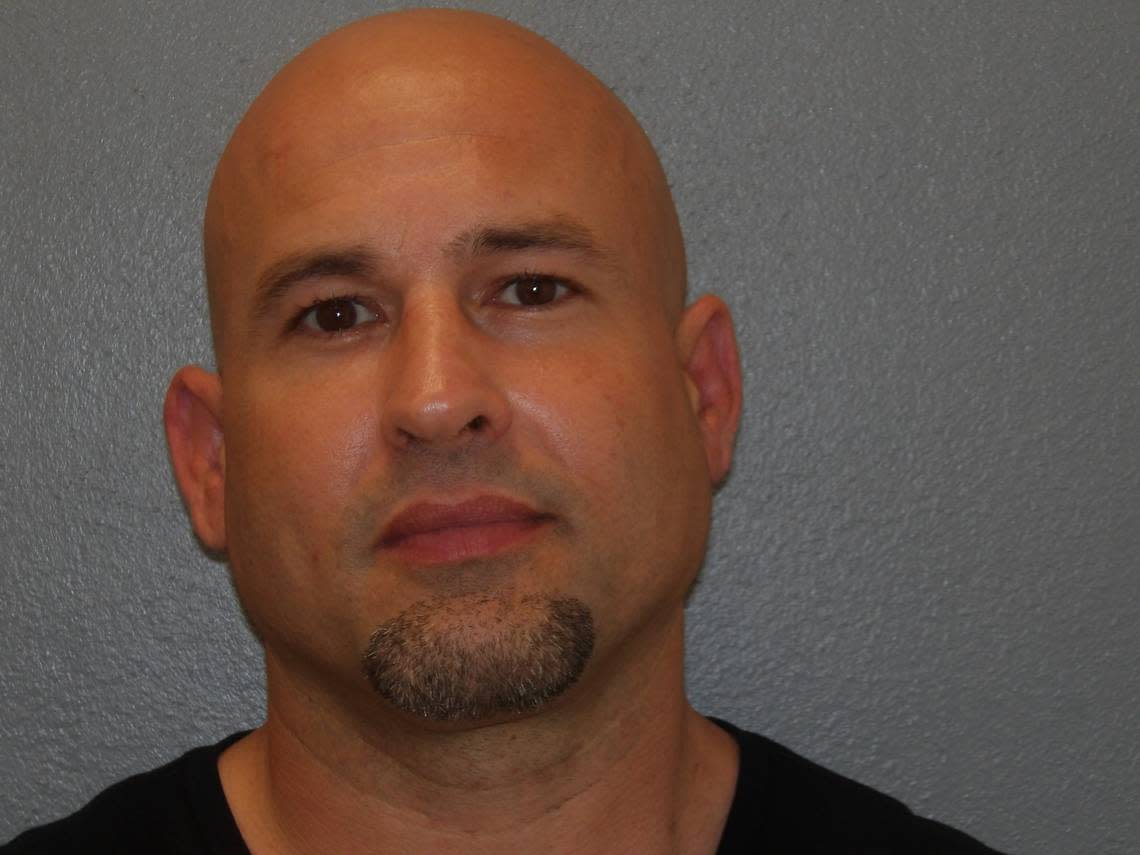
He contended Wednesday that he only agreed to drive Macauley to Rosado’s home so he could pay Ortiz money to satisfy him and keep quiet.
Macauley and his boss, Rick Rodriguez, found a large haul of between 18 and 20 kilos of cocaine over the summer of 2015 while taking clients out on Rodriguez’s charter fishing boat, the Sea Horse, both prosecutors and Macauley’s attorney said.
The two split the cocaine, the attorneys said. They also paid off the clients on the boat that day with either cocaine, cash or a combination of the two. Detectives didn’t have enough evidence to pin anything on Rodriguez, and he was not arrested or charged. He denied to the Herald that he had anything to do with bringing the drugs to shore or the murders.
During opening arguments this week, prosecutors said it’s not clear what Rodriguez did with his piece of the contraband. Rodriguez did not respond to an email from the Herald about the attorneys’ statements.
Macauley, 41, took his share of the cocaine, divvied it up into smaller portions and employed drug-dealing friends, including Demblans and Ortiz, to help him sell it locally, investigators say. Demblans testified that Macauley paid him $600 on consignment for every ounce he sold, which went for $1,200.
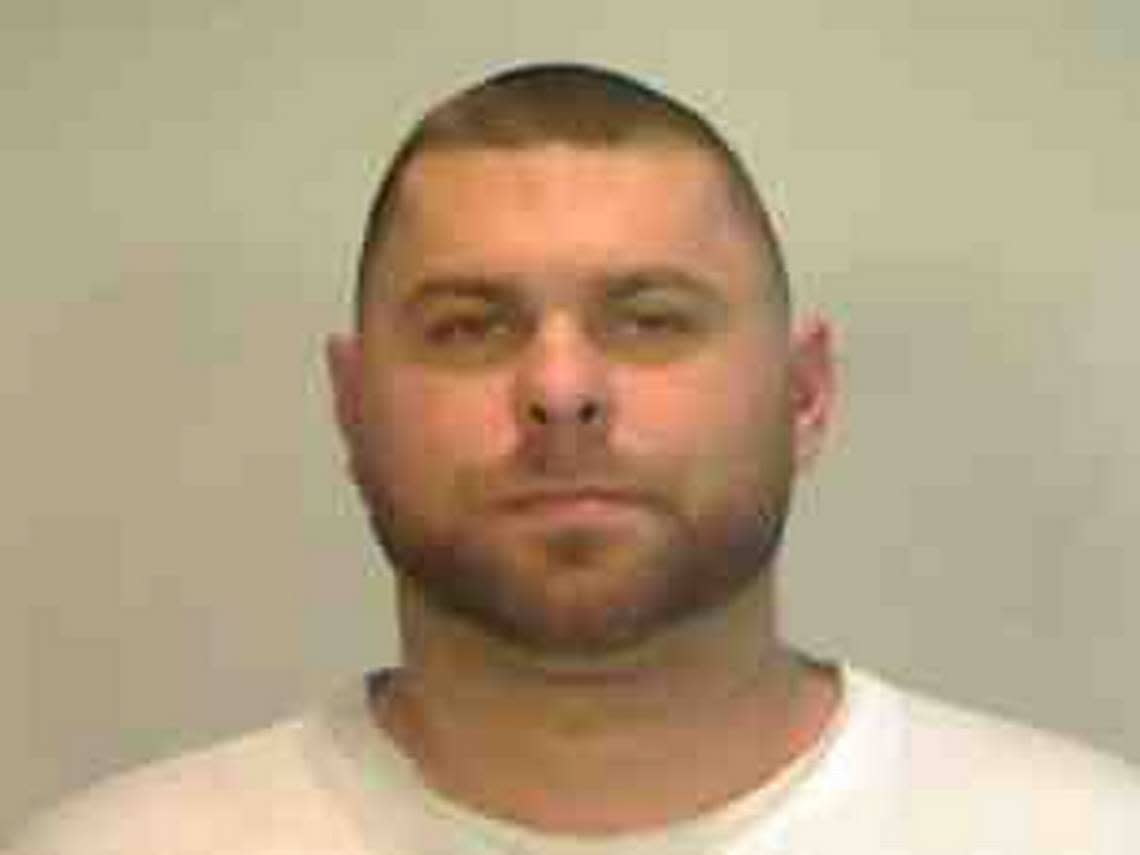
Macauley, according to prosecutors, shot both Rosado and Ortiz once in the head with a Colt .45 caliber 1911 pistol. Since Ortiz was living with Rosado at her home, along with her three young children, she was killed for being in the wrong place at the wrong time, investigators say.
Their bodies were found the next afternoon by a neighbor who noticed the children in the front yard of Rosado’s home.
Donald Barrett, Macauley’s attorney, is arguing in his retrial this week that his client wasn’t with Adrian Demblans that night. Rather, someone else was the trigger man, he said.
Retrial ordered
A jailhouse witness in October 2016 told prosecutors in a sworn statement that Adrian Demblans’ identical twin brother, Kristian Demblans, told him he was the one who shot Rosado and Ortiz — adding he would have killed the kids had they came into the couple’s bedroom that night.
Macauley, who was convicted of the murders in November 2017 and sentenced to two life prison terms the next month, is being retried because the 3rd District Court of Appeal ruled the jailhouse witness’ recorded statement should have been heard by the jury during the original proceedings.
The witness, Eric Lansford, declined at the last minute to travel from Alabama to testify at the trial because he said he was getting threats that if he showed up, he’d be killed. Macauley’s attorney at the time, Ed O’Donnell, Sr., asked Monroe County Circuit Judge Luis Garcia if Lansford’s statement could be played for the jury in his absence. Garcia declined.
The appellate judges said his statement was possibly exculpatory, and it was credible since Lansford was one month away from finishing a year-long jail stint for burglary at the time he gave it, and therefore had nothing to gain.
Extortion attempt
On Wednesday, the third day of the new trial, Kristian Demblans’ name was mentioned several times, but Barrett, the defense attorney, never came out and said he was the gunman. Rather, he pressed Adrian Demblans on his level of involvement in the murders and for not saying anything about them until well after his arrest and after prosecutors offered him a deal.
“You knew exactly what was going to happen” after driving Macauley to Rosado’s house, Barrett told Demblans as he took questions Wednesday.
“That’s not true,” he responded.
Ortiz was in the throes of a worsening-by-the-day drug addiction when he began threatening Macauley with going to the cops,
To make the extortion attempt seem more believable, Ortiz, who was also sending similar messages to Rodriguez, was saying he was a confidential informant to police. But, Demblans told assistant state attorney Aleathea McRoberts he convinced Macauley that wasn’t true because he had some ongoing drug business with Ortiz and hadn’t been caught.
“I would have been arrested by now,” he said he told Macauley.
As the day of the murders approached, Ortiz demanded in a series of text messages that Macauley give him $20,000 and a kilo of cocaine and in exchange, he’d keep his mouth shut, Demblans said.
Instead, Demblans told McRoberts he devised a plan for Macauley to send Ortiz a photo of $1,600 in cash, tell him it was $3,000, and then deliver it to him in person.
“The picture looked like a lot of money. He sent Carlos the photo,” Demblans said. “Carlos said he was okay with it.”
‘A couple of guys with loaded .45s’
The night of the shootings, Macauley asked Demblans to pick him up at his home in Key Largo and drive him 14 miles south to Rosado’s home to deliver the money, according to Demblans’ testimony. Demblans said Wednesday that once he got to Macauley’s house, he could tell he was high on cocaine.
Before they left, Macauley loaded his pistol. Demblans told McRoberts, “I didn’t think anything of it.” That’s because carrying weapons is part of the illegal narcotics trade, Demblans explained, and he was also armed that night — with a .45 caliber Glock pistol.
On cross examination, Barrett addressed the two being armed as further evidence Demblans knew murder was in the cards that night.
“Just another Thursday night for you? A couple of guys with loaded .45s going to a drug-dealer’s house,” Barrett said.
Macauley stashed his gun in the front pocket of his hooded sweatshirt, and the men drove south. They stopped by Demblans’ house in Key Largo first, where Demblans traded one of his friends a rock of crack cocaine so she would let him borrow her Toyota RAV4 to drive to Rosado’s Tavernier home.
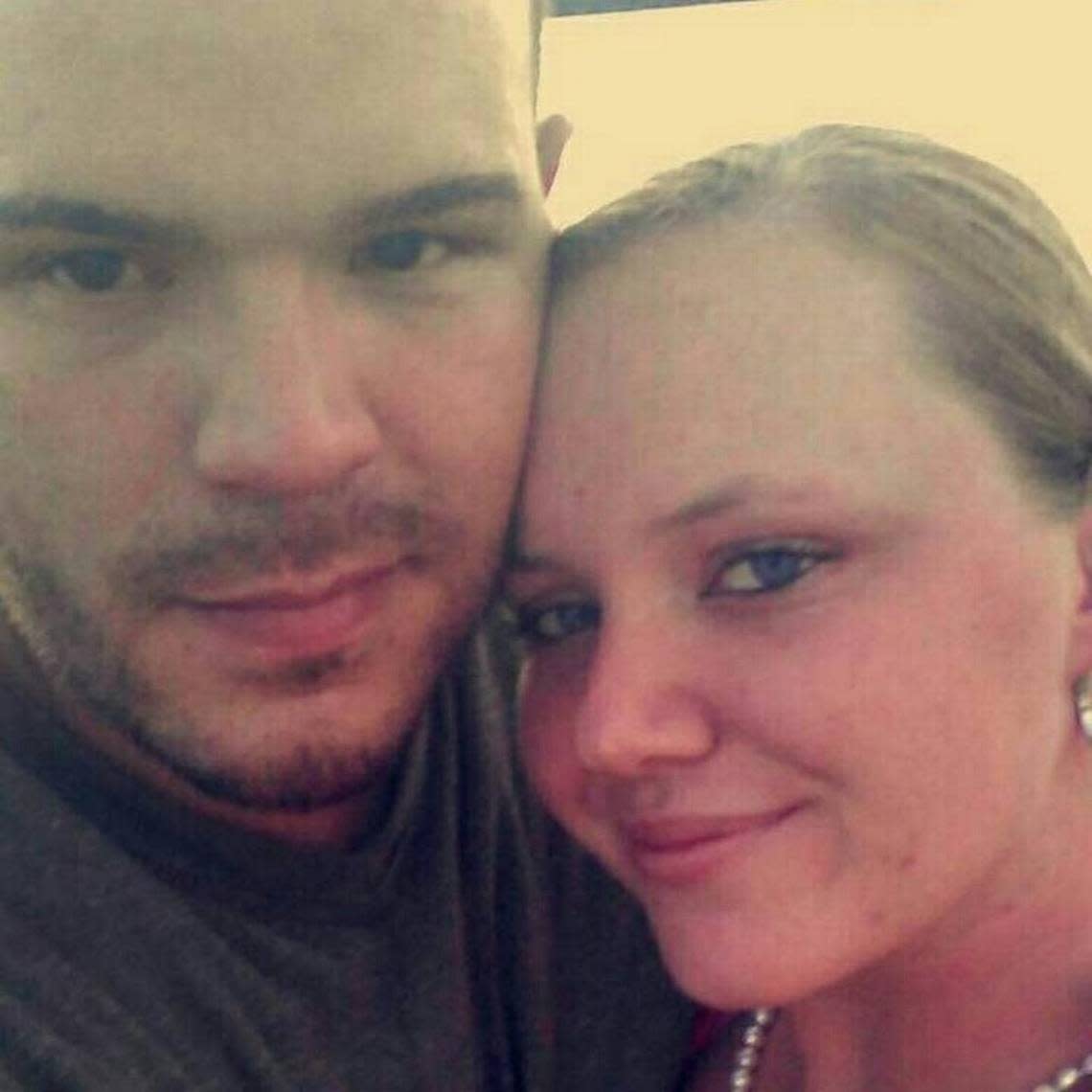
Demblans said he didn’t want to take his red 2004 Chevy Colorado pickup because it had been overheating. Barrett argued Demblans didn’t want to take his car because he knew they were on their way to kill Ortiz and he didn’t want his vehicle seen at the house.
When they arrived at the home, Demblans backed the Toyota into the driveway. Ortiz was standing outside. Macauley and Ortiz walked inside the home while Demblans stayed with the car, he said. Moments later, he said he heard two loud shots coming from inside the home.
Not knowing who had been shot — Ortiz or Macauley — Demblans said he got out of the car with his Glock drawn. When he went inside, he said he saw the bodies of Rosado and Ortiz.
“I said, ‘We gotta go,’” Demblans said on the stand.
Macauley had grabbed a cell phone from the floor and asked Demblans to help him find another one. Demblans said he replied, “It doesn’t matter, we gotta go.”
Macauley wanted the phone because he knew Ortiz not only had the incriminating extortion texts, but also photos taken after the cocaine was found at sea showing Macauley posing with the drugs and cash, prosecutors say.
Demblans said they got back into the car and he pulled out of the driveway. But, he then stopped the car, got out, and smoothed out the gravel in the driveway with his feet to cover the tire marks, he said.
Prosecutors argue that footage from a security camera mounted on the house next door shows Macauley get out of the car and enter and exit Rosado’s house. Barrett, and Macauley’s previous attorneys, argue the footage is too grainy to make out the identities of anyone shown.
After the shooting, Demblans and Macauley traveled north back to Key Largo, investigators say.
They drove over a small bridge over a canal on Ocean Bay Drive. As they headed east on the bridge, Macauley threw the pistol over the side into the water, Demblans said.
He then turned the car around, and drove west over the bridge, and Macauley tossed the phone he stole from Rosado’s house. At first it bumped off the railing and fell onto the street, so Macauley had to get out of the car, pick up the phone and drop it in the canal, Demblans told McRoberts.
Demblans then returned the RAV4, picked up his pickup and dropped Macauley off at his house, he told both attorneys.
“It was over now,” he said he recalled thinking. “It’s all over now.”
Gun and phone found
A month later, a snorkeler swimming in the canal found the gun and called the sheriff’s office. Detectives were later able to connect the gun to the two shell casings and one bullet found at the Cuba Road home. The other bullet went through the wall, and detectives were never able to find it, Detective Sgt. Barney Sajdak testified Monday.
Sheriff’s office divers also found the phone Macauley threw in the water.
In January 2016, Demblans got word detectives were asking people he knew about the case, and he borrowed scuba equipment from a neighbor, including an underwater metal detector, and dove into the canal looking for the gun and phone, not realizing the items were already in police custody.
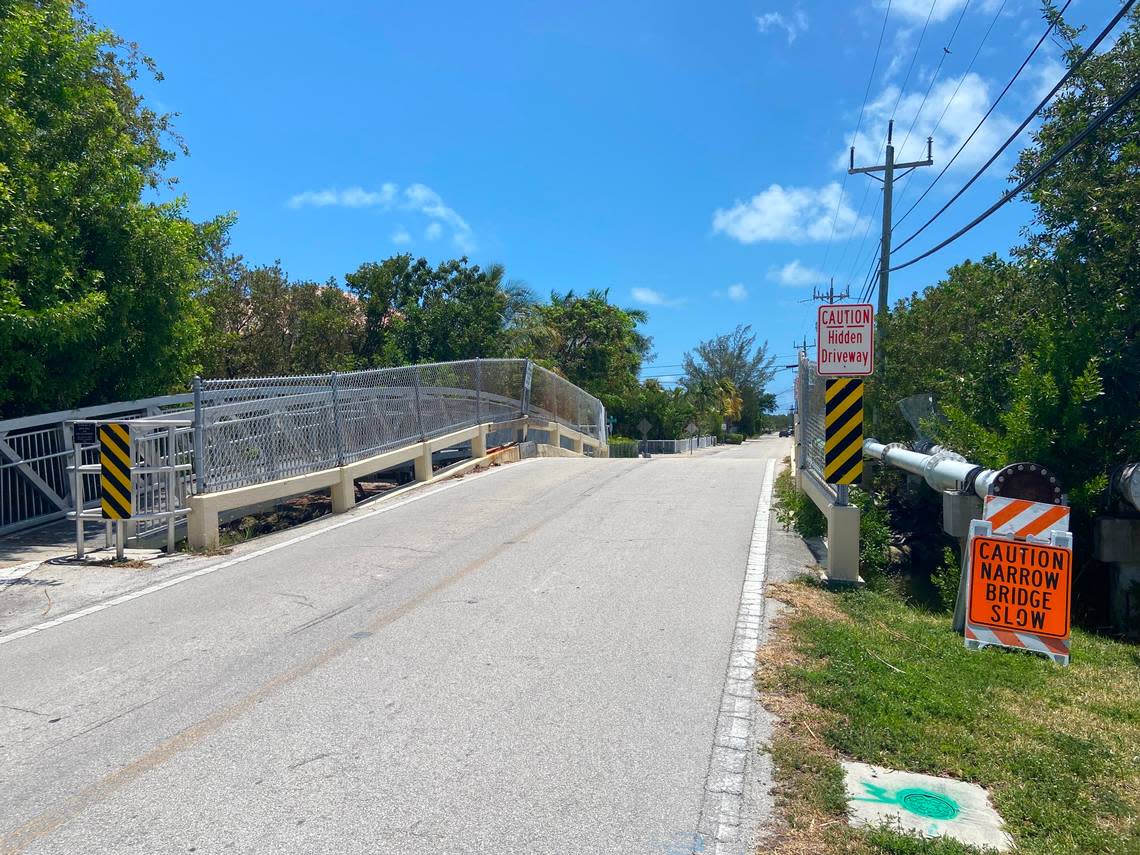
He told both McRoberts and Barrett he dove the canal at Macauley’s request.
The sheriff’s office arrested Macauley and Demblans in March 2016. Macauley was charged with two counts of first-degree murder and one count of armed robbery — and Demblans on accessory after the fact of a murder.
If Demblans had not made the deal to cooperate against Macauley, he was looking at 30 years in prison.
He was originally sentenced to 10 years, but, Garcia reduced it to eight years after Demblans agreed to help the state’s case against Macauley for drug-trafficking charges related to the cocaine he brought to shore. Macauley ended up pleading guilty in that case and was sentenced to 15 years in prison.
Barrett on Wednesday pressed Demblans about why, if he did not know Macauley was going to kill Ortiz and Rosado, he didn’t go to police and tell them he was “an unwitting accomplice to two brutal murders.”
Demblans, who said he is now clean, responded it was because he was addicted to cocaine, including crack and heroin.
“I was too busy smoking crack,” Demblans said.
From suburbia to addiction, dealing
While the rest of the players in this case come from a working-class background, the Demblans brothers grew up in relative prosperity in Palmetto Bay — each graduating with bachelor’s degrees in criminal justice from Florida International University.
They started experimenting with drugs in their teens, and progressed to full-blown addictions by the time they reached their 20s, Adrian Demblans said Wednesday.
In 2008, Adrian Demblans was convicted of cocaine trafficking and served two years in state prison.
“I knew how to get it, and I would help people out,” he told McRoberts. “Little by little. That’s how it starts.”
In 2010, after getting out of prison, Adrian was the first one to move to Key Largo, where his parents had a second home, and got into the charter fishing boat business, eventually buying a boat from Rick Rodriguez that he renamed the Reel G.
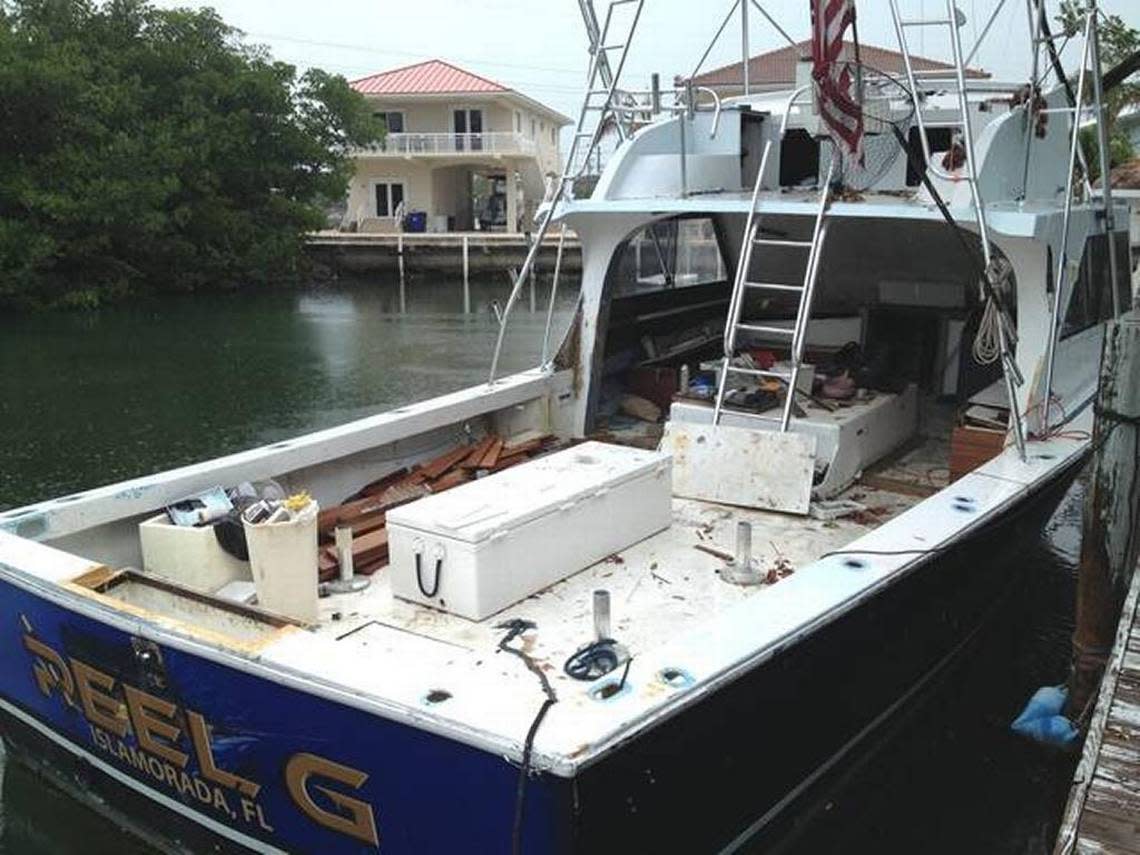
Kristian, who had a commercial captain’s license, followed him about a year later, and his brother was able to get him a job on his friend’s boat. But, he too began getting deeper into addiction and lost that job, Adrian said.
While Adrian was sober for a while after serving his time, he drifted back into his addiction.
“It started as smoking weed again, but that led to cocaine use, then harder drugs like crack and heroin,” he said.
The Reel G was docked at Whale Harbor Marina in Islamorada — and that’s when he started hanging out with Macauley, he said.
While Adrian said he has been sober for years, his brother has continued to go down a bumpy road. He was arrested this week for a probation violation on a previous driving under the influence conviction and is being held in Monroe county jail on a $50,000 bond, according to sheriff’s office records.
After he was finished testifying Wednesday, Adrian Demblans spoke to a Miami Herald reporter outside the Plantation Key courthouse and said his brother had nothing to do with the murders. While both were drug dealers at the time, they moved in different circles, and Kristian didn’t know Ortiz well nor was he involved with selling Macauley’s cocaine, he said.
“They’re grasping at straws. They’re trying to find something, but they picked the wrong thing. My brother really never did have anything to do with Carlos, so I don’t see how they’re going to prove a motive,” Demblans told the Herald.
He also dismissed Lansford’s statement about Kristian confessing to him that he was the trigger man.
“With a jailhouse snitch saying he said this, he said that, how can you really trust a jailhouse snitch? Also, at that point in time, I believe my brother was withdrawing at the jail,” Demblans said. “Did he say it? Maybe. He could have. He could have not. Who knows. Just because you say something doesn’t mean you did it.”
Demblans added that if Kristian said he was the one who shot Ortiz and Rosado, he could have been him trying to project an image that he was a hardened criminal so fellow inmates wouldn’t mess with him.
“A lot of times you look to say something to give you a little bit of the edge inside. Protection, oh, ‘a tough guy’ or something,” Demblans said. “He definitely didn’t have anything to do with it. I definitely didn’t know what was going to happen.”
